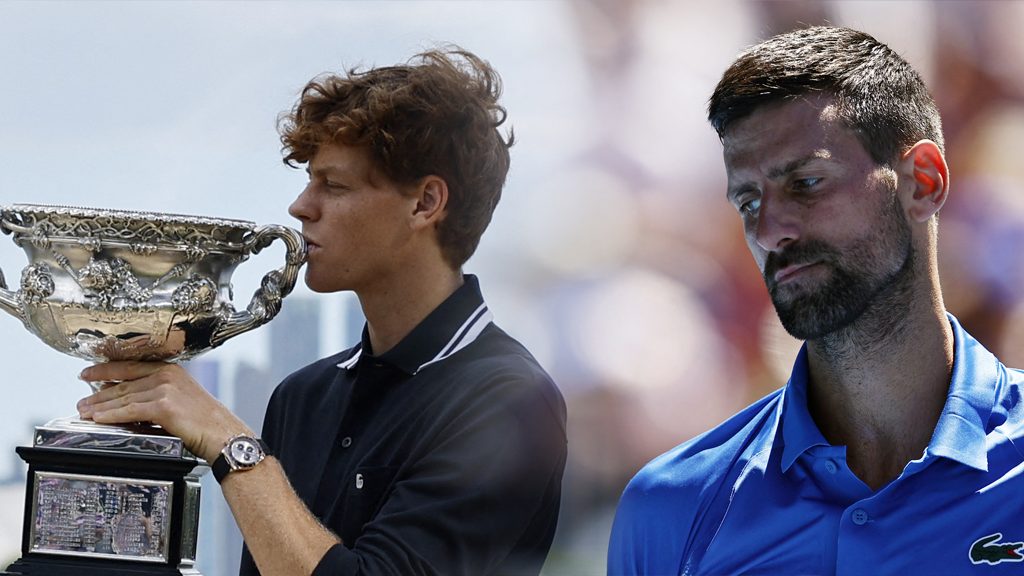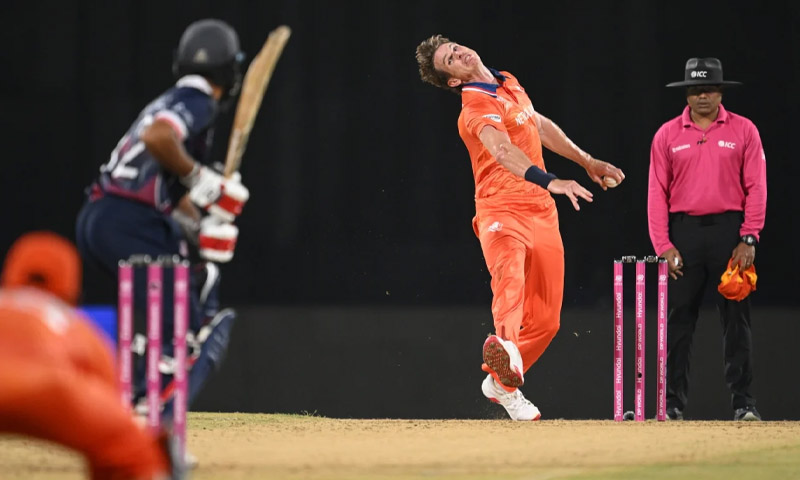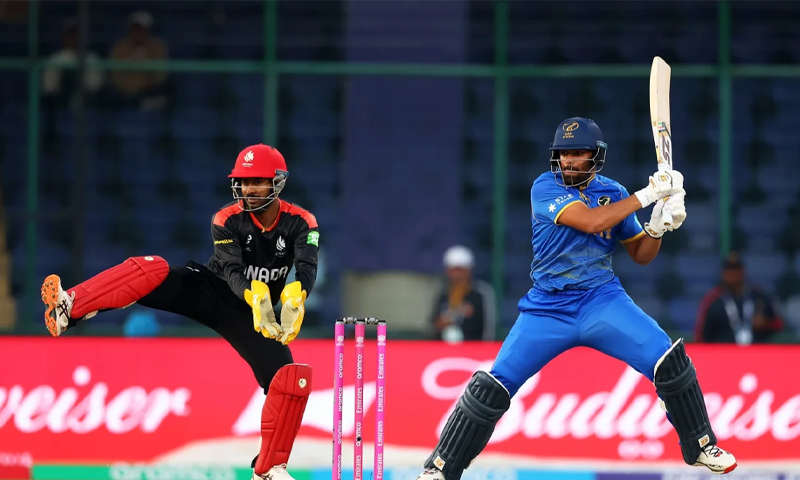- Web Desk
- 3 Hours ago
Aftermath of the Sinner ban: Djokovic, Zverev, and others react
-

- Web Desk
- Feb 18, 2025

WEB DESK: Since Jannik Sinner received his three-month ban for doping earlier this week, multiple high-profile tennis players have voiced their opinion on the matter, many expressing that the decision isn’t fair.
Recap
Sinner failed a drug test back in march 2024, which showed that the world number one player had trace amounts of clostebol in his sample, a banned anabolic steroid. However, the International Tennis Integrity Agency (ITIA) found ‘no fault or negligence’ on Sinner’s part, accepting his explanation of accidental contamination from a substance used to treat a cut on his finger.
Later in September 2024, the World Anti-Doping Agency (WADA) challenged the decision, lodging an appeal to the Court of arbitration for Sport (CAS), which came to a resolution earlier this week. WADA revealed that a resolution agreement had been reached with Sinner, which would see him banned for three-months. In summary, while they found that Sinner did not plan to cheat, he still bears responsibility for his entourage’s negligence.
Importantly, the three-month ban ensures that Sinner will re-join competition in time for the next grand slam of the year, the French Open.
Also read: Jannik Sinner handed three-month ban for doping
Novak Djokovic
Many tennis players have come out since Sinner’s ban, which itself followed a ban to five-time grand slam champion Iga Swiatek who received a one-month suspension in a similar case, expressing that such a short suspension is unfair. At the forefront of the discourse is Novak Djokovic.
“There is a lack of trust generally from the tennis players, both male and female, toward WADA and ITIA and the whole process,” the former world number one said at the Qatar Open. The man who holds the all-time record for most grand slam wins went on to explain that through conversations with other players, he finds the consensus regarding the bans to be that the decision was unfair and indicative of favouritism.
“It’s not a good image for our sport, that’s for sure.”
He stated that there was a belief that if you are a top player with access to the top lawyers, you can affect the outcome of such bans. Djokovic also clarified that it wasn’t about questioning Sinner’s innocence, but rather the inconsistent handling of doping cases.
Other notable doping cases in recent time include Simona Halep and Maria Sharapova, who were banned in 2022 and 2016 respectively. The former was banned for Roxadustat, and claimed that contamination was unintentional, and had come from a supplement. She was handed a four-year ban, which was later reduced to nine months.
Sharapova tested positive for meldonium, a drug she had used for over a decade to treat diabetes symptoms, magnesium deficiency, and the flu. She claimed that she wasn’t aware of the drugs inclusion on the banned list in January 2016, but was banned by the International Tennis Federation (ITF) for two years, which was reduced to 15 months after an appeal. The ruling was similar to Sinner’s, as the court found there was no intent to cheat.

Another case of a player claiming unintentional contamination was Marin Cilic in 2013, who stated that nikethamide was found in his sample from glucose tablets he had purchased at a pharmacy in France. He was given a nine-month suspension, which was later reduced to four after an appeal.
Djokovic stated that ban represents a problem with the system, and there needs to be a more effective way to deal with such cases.
“Right now, it’s a ripe time for us to really address the system, because the system and the structure obviously doesn’t work, its obvious.”
Also read: Stephen Curry wins MVP in new All-Star tournament format
Alexander Zverev
Alexander Zverev, the current world number two who played Sinner last in the finals of the Australian Open, expressed his views on the ban as well.
For Zverev, it comes down to whether the court believes Sinner is guilty or not. If he is not, then he shouldn’t receive any punishment. However, if he is at fault for doping, then a three-month suspension is not enough.
“Either you are guilty and you should not receive any suspension. Because if you’re not guilty, then you are not guilty. You should not be punished. But if you are guilty, then I think that for taking steroids, three months is not a suspension.”
Zverev’s comments highlight a similar belief to Djokovic’s. Namely, that the system is flawed, as Sinner was found to not have intentionally taken the steroid, yet he was handed the ban regardless.
Daniil Medvedev
Former world number one, and current world number six, Daniil Medvedev, expressed his hope that other players would also be given the opportunity to talk with WADA to reduce their suspensions. In what were rather sarcastic comments, Medvedev highlighted the favouritism Sinner was receiving, and the precedent that set.
“I hope that next time, the players will be able to talk to WADA. And WADA will say, we found this and you get two years. And you’re there and you say, no, I want a month. So I hope that it will create a precedent where everyone will have the opportunity to defend themselves better than before.”
He went on to clarify that he hopes “everyone will have the right to represent themselves,” even those who don’t have the money to have the best lawyers.
“Because it’s a bad sign if he’s the only one who can do that. But, it’s a very good sign, if, after this, everyone can do that,” Medvedev said.

Also read: Where to watch (and listen to) the Champions Trophy
Nick Kyrgios
Nick Kyrgios, a popular player notorious for his outbursts on the court, also took to social media to voice his dissatisfaction with the ban.
In a long post on Instagram, Kyrgios addressed the tennis players of the future, claiming that after the recent decision, they can dope, “just without knowing.”
“Test positive, play through all the investigation, then settle on a convenient 3-month ban, not get stripped of any money or titles and carry on.”
He went on to express how the decision disappoints him, “someone who has played this sport since I was 7 years old. Battled injury after injury and have given a shit load to this sport.”

Other players
British tennis player Liam Broady also believed that the ban was sufficient for doping, claiming that the suspension was the equivalent to “a Premier League footballer being banned over the summer.” In other words, Broady believes that the suspension didn’t impact Sinner’s career or season at all, which he thinks was planned.
“I do think a lot has been put into when the ban would take place, to impact Jannik’s career as little as possible.” Broady pointed to the fact the ban will not only allow him to compete in the French Open, but also his home country tournament, the Italian Open, which would be “perfect preparation for him.”
The British player stated that while he believes Sinner didn’t take the supplement on purpose, the decision does reflect “favouritism towards the better players on the tour.”
Stan Wawrinka, three-time grand slam champion and former world number three, also chimed in on X, expressing discontent with the decision.
“I don’t believe in a clean sport anymore,” Wawrinka wrote.
Favouritism
It seems clear that the majority of players feel that the decision shows favoritism to the current world number one, and that others players who do not have the status nor the money to garner favoritism or afford the best lawyers, wouldn’t receive similar treatment.
However, players were also hesitant to claim that Sinner was guilty of doping, many expressing that while they believed he was innocent, that the short suspension itself wasn’t appropriate for a doping suspension.

This points to the view that the the system itself is flawed, as if the court decided the substance was taken unintentionally, Sinner shouldn’t have received a ban. However, players also believe that if the court decided that clostebol was taken with his knowledge, then a ban of three months isn’t sufficient. It seems that the court’s decision to find Sinner guilty of not taking the substance, but rather responsible for his entourage’s negligence, has created a grey area that has the tennis world in uproar.
Also read: Visas issued to Indian journalists for Champions Trophy




